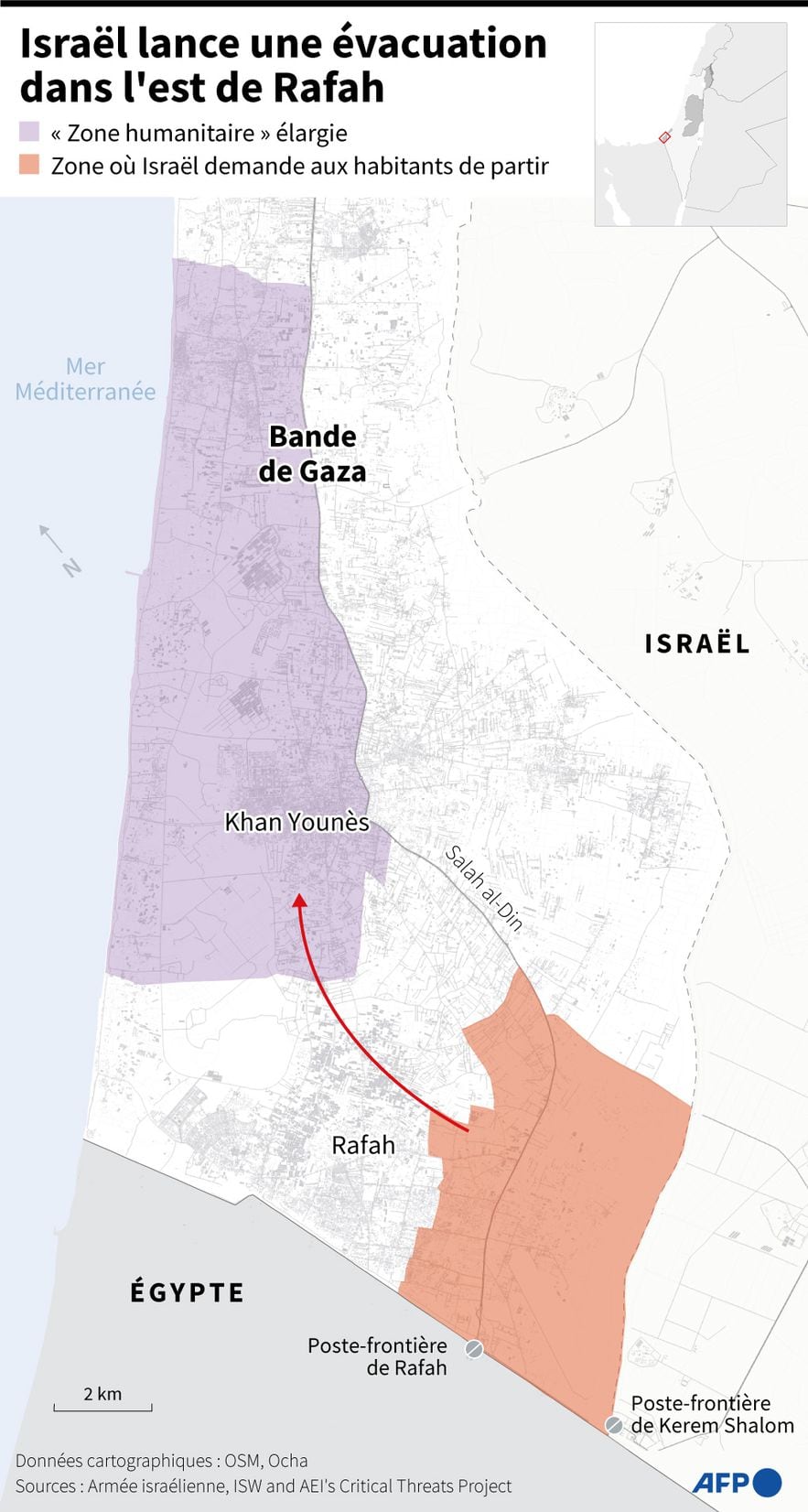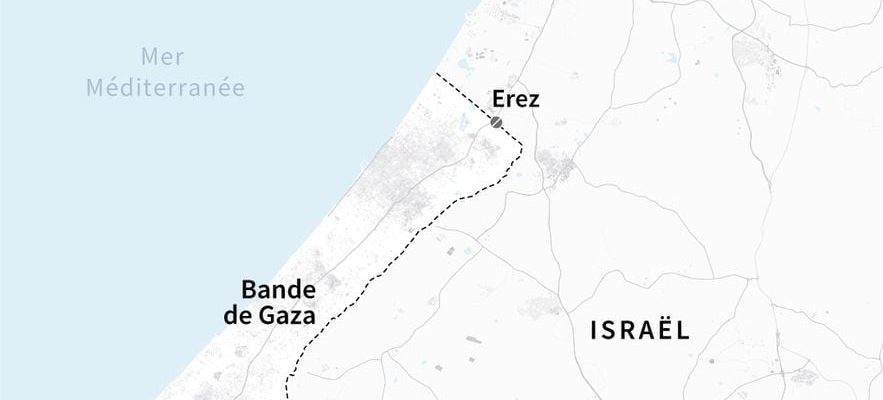The race against time is underway between the continuation of the war and the hope of a truce in Gaza. On the night of Monday May 6 to Tuesday May 7, the Middle East experienced many twists and turns: Israel gave a glimpse of the first signs of an offensive, before, a few hours later, Hamas accepted the terms of the ceasefire. -the hard-negotiated fire. Except that Tel Aviv still believes that the account is not there. Despite calls for restraint from the international community, will the Jewish state still choose a ground attack in Rafah?
On Tuesday, May 7, the Israeli army announced that it had taken control of the Palestinian part of this crossing point between the Gaza Strip and Egypt and that ground troops had begun a “targeted counterterrorism operation.” During the night from Monday to Tuesday, Israeli tanks, stationed near Rafah, finally started moving. An armored unit “has been maneuvering in the area. At the moment, special forces are inspecting the Rafah crossing point: “we have operational control of the area”, affirmed the Israeli army during a briefing press release, specifying that they were speaking “only on the Gaza side of the crossing point”.
To justify its operations, the Israeli army (IDF) published a press release on Telegram reporting a “specific anti-terrorist operation” carried out in eastern Rafah, following “intelligence” that the crossing point was “used for terrorist purposes”. The IDF has not provided evidence.
The objective of the Israeli army: to increase the “pressure” on Hamas a few hours before new talks in Cairo to try to influence a truce agreement. Civil Defense in the Gaza Strip reported “numerous deaths” overnight in Rafah. And the Kuwaiti hospital, located in this city, said it had received “eleven dead” and “dozens injured” in these strikes, thus recording an initial toll of five dead.
“Military pressure on Hamas”
After its operations in Gaza City, then Khan Younes, Israel has been threatening for weeks to push its ground offensive as far as Rafah, considered the last bastion of Hamas but where 1.2 million people were still crowded last weekend. Palestinians, the majority displaced by the fighting. However, on Monday, the situation took another turn: after talks in Cairo did not result in a truce agreement, the Israeli army began an operation to evacuate tens of thousands of people from Rafah. Then, in the evening, Hamas said it had informed Egypt and Qatar, mediator countries with the United States, that it had “approved their proposal for a ceasefire agreement” with Israel.
The Rafah border crossing, a strategic target for Israel
© / AFP
Except that this proposal is “far from Israeli demands”, retorted the office of Prime Minister Benjamin Netanyahu. The war cabinet decided “unanimously” to continue “the operation in Rafah in order to exert military pressure on Hamas with the aim of progressing towards the release of the hostages and the achievement of other objectives of the war”, indicated the Prime Minister’s services. “Although Hamas’ proposal falls far short of key Israeli demands, Israel will send a high-ranking delegation to Egypt with the aim of maximizing the chances of reaching an agreement on terms acceptable to Israel,” they added.
Shortly after this declaration, Qatar announced the sending on Tuesday morning of a delegation to Cairo “to relaunch indirect negotiations between the two parties […] with the hope of reaching an agreement for an immediate and permanent ceasefire” in “exchange of prisoners and hostages”. According to the number 2 of the political branch of Hamas in Gaza, Khalil al-Hayya, the proposal includes three phases, each lasting 42 days, and includes a complete Israeli withdrawal from the territory, the return of displaced people and an exchange of hostages held in Gaza and Palestinian prisoners detained by Israel, with the aim of a “permanent ceasefire”.

Israel launches evacuation in eastern Rafah.
© / AFP
Famine ‘will get worse’
Until now, Israel has opposed a complete withdrawal of its troops from Gaza and a permanent ceasefire, believing that it must first carry out an operation on Rafah to “defeat” Hamas and ensure that the October 7th doesn’t happen again. In the absence of an agreement, the international community fears that the humanitarian situation on the ground will deteriorate. The famine “will worsen” if the supply lines at the Rafah crossing point “are interrupted”, UNRWA warned on Tuesday May 7. The UN has been denied access to the Rafah crossing point by Israel, a spokesperson for the Office for the Coordination of Humanitarian Affairs said on Tuesday.
Egypt, which is hosting the talks, urged Israel “to exercise maximum restraint and avoid further escalation” while Jordan’s King Abdullah II, who spoke with US President Joe Biden at the White House, called on the international community to do everything to prevent “a new massacre” in Rafah.
And in a telephone interview, Joe Biden reiterated his “clear position” to Benjamin Netanyahu against any offensive in Rafah, the State Department saying it had not seen “a credible humanitarian plan” for an operation which would only increase ” the suffering of the Palestinian people. While China urged Israel on Tuesday to “stop attacking Rafah”, Josep Borrell, the EU’s high representative for foreign affairs, fears that “this will again cause many victims”.
